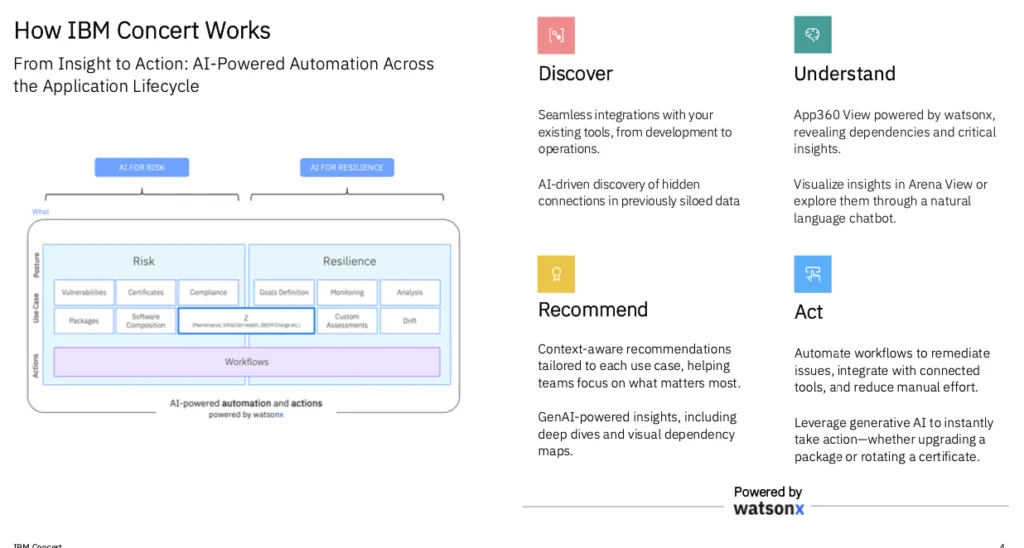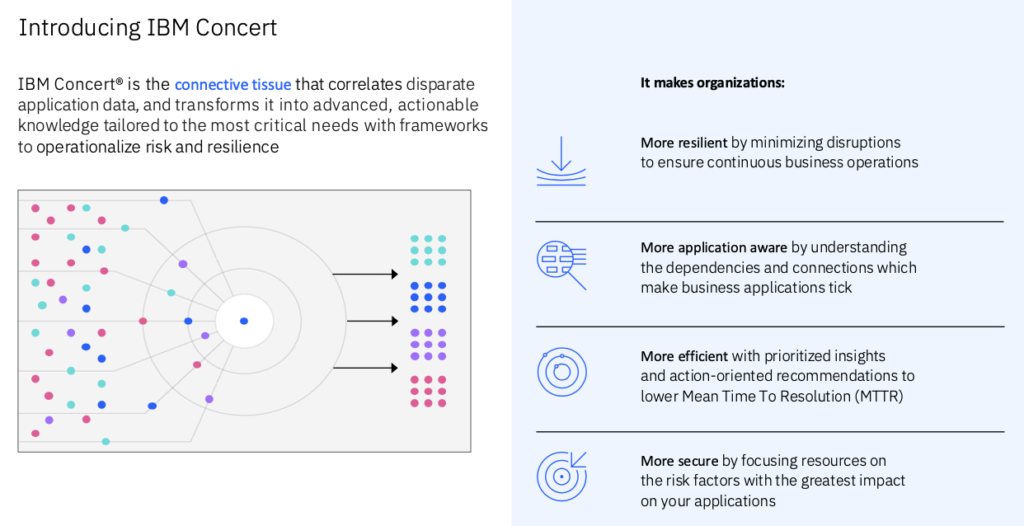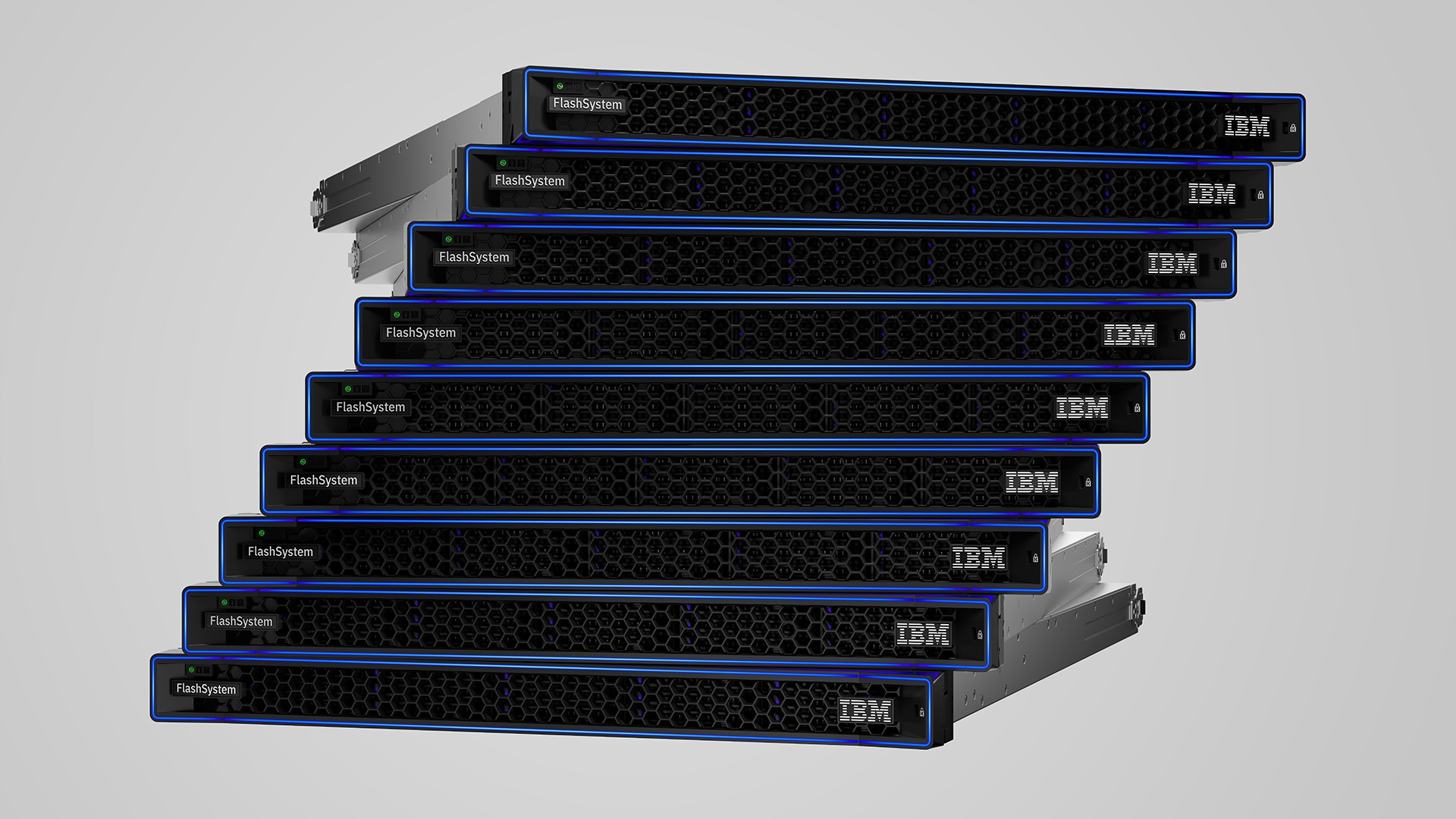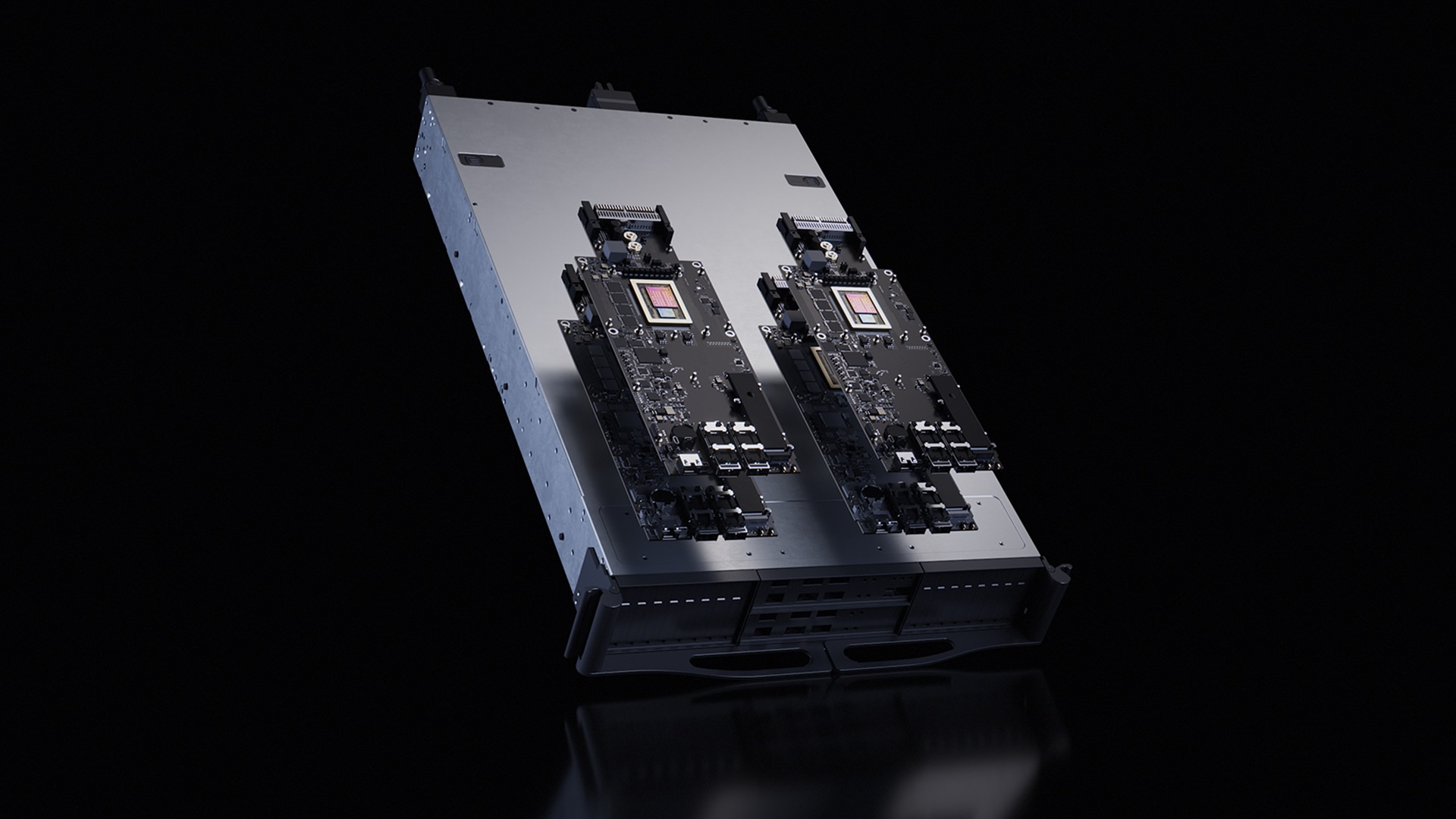IBM has introduced three significant updates to its IBM Concert platform, extending its capabilities in resilience management and hybrid infrastructure support. These updates allow IT organizations to shift operations from reactive to proactive posture by applying AI and workflow automation across observability, remediation, and mainframe operations.
Background: What is IBM Concert?
IBM Concert is an AI-powered operational intelligence and automation platform that improves application resilience, security, and compliance across hybrid and multi-cloud environments.

Concert ingests and correlates signals from a variety of IT telemetry sources, including observability tools, ITSM platforms, and application infrastructure, to provide real-time, actionable insights. The platform leverages generative AI to surface risks, recommend remediation, and automate operational workflows.
Core capabilities include observability integration, quantifiable resilience scoring, automated remediation workflows, and compliance and vulnerability management support.
Concert Enhancements
IBM introduced three updates to the IBM Concert platform, extending its capabilities in resilience management and hybrid infrastructure support.
IBM Concert Resilience Posture
IBM Concert Resilience Posture delivers an AI-driven framework for measuring and sustaining application resilience. It builds a unified resilience score from over 90 data points across observability (e.g., Instana) and ITSM systems.
The resilience score is calculated based on six core dimensions:
- Scalability: Assesses the application’s ability to scale under varying demands without performance degradation.
- Usability: Validates the application’s operational consistency across user scenarios.
- Availability: Confirms that the application remains continuously accessible.
- Recoverability: Measures how quickly the system recovers from operational disruptions.
- Observability: Analyzes depth and quality of system telemetry and change visibility.
- Maintainability: Evaluates ease of troubleshooting, updating, and long-term support.
Concert correlates these signals using AI models to detect resilience drift from defined non-functional requirements. For example, an application requiring 99.999% uptime is flagged if actual observability metrics indicate underperformance, enabling prioritization based on tier-specific SLAs.
Key capabilities include:
- Continuous assessment of resilience posture across hybrid/multicloud infrastructure.
- AI-generated recommendations to resolve resilience gaps.
- Ability to benchmark applications against internal targets using IBM SRE best practices.
- Consolidation of disparate monitoring and ITSM data sources into a unified resilience view.
IBM Concert Workflows
IBM Concert Workflows provides generative AI-driven remediation that transforms resilience findings into automated, executable actions. Workflows can span application, infrastructure, and security domains, reducing the need for manual triage.
Core capabilities:
- Cross-stack and cross-domain remediation: Enables coordinated issue resolution across distributed systems.
- Vendor-agnostic automation: Reuses prebuilt automation assets and action blocks for over 250 vendors; supports onboarding for new tools within 15 business days.
- Unified operational view: Connects security, development, and operations teams through shared workflows.
- Real-time AI-driven action generation: Converts resilience insights into actionable tasks and remediation playbooks.
This module also supports native integration with existing automation tools, reducing implementation overhead and enabling incremental adoption.
IBM Concert for Z APAR Insights
IBM is extending Concert’s capabilities to IBM Z environments through the new APAR Insights module. This brings resilience monitoring and automation to mainframe workloads, integrating IBM’s proprietary APAR (Authorized Program Analysis Reports) mechanism into the broader Concert ecosystem.
Core features include:
- Automated identification of APAR updates relevant to system stability or security.
- Risk-based prioritization of APAR fixes, considering blast radius and business criticality.
- Automated generation of recommended remediation workflows.
- Unified resilience view that spans cloud-native and mainframe infrastructure.
Impact to IT Practitioners
The new capabilities in IBM Concert offer several tangible operational benefits for IT teams:
- Quantifiable Resilience Metrics: IT operations teams can move beyond qualitative assessments and define measurable resilience objectives using the Resilience Score.
- Reduced Mean Time to Remediation (MTTR): AI-generated workflows allow faster automated incident response.
- Improved Operational Efficiency: By integrating with existing monitoring, automation, and ITSM tools, Concert eliminates the need for point solutions and manual correlation work.
- Mainframe Integration: For organizations operating hybrid environments with IBM Z, including APAR insights closes a key visibility gap and reduces the operational overhead associated with tracking and prioritizing fixes.
- Resilience Budget Allocation: Tier-specific resilience scoring helps IT leaders focus spending and engineering efforts where the business impact is highest.
Analysis
With these updates, IBM Concert strengthens its position as a unified resilience management platform across hybrid and mainframe infrastructures. The combination of real-time data correlation, quantifiable scoring, and automated remediation reduces operational complexity, improves system uptime, and lowers the barrier to enterprise resilience engineering.
The enhancements will appeal to large enterprises seeking to consolidate tooling and automate resilience workflows across both cloud-native and legacy platforms.
While vendors in observability and automation continue to exert competitive pressure, IBM’s integration of AI-driven remediation, SRE-aligned best practices, and IBM Z coverage makes Concert a differentiated option for end-to-end operational resilience.
Competitive Outlook & Advice to IT Buyers
These sections are only available to NAND Research clients and IT Advisory Members. Please reach out to [email protected] to learn more.





